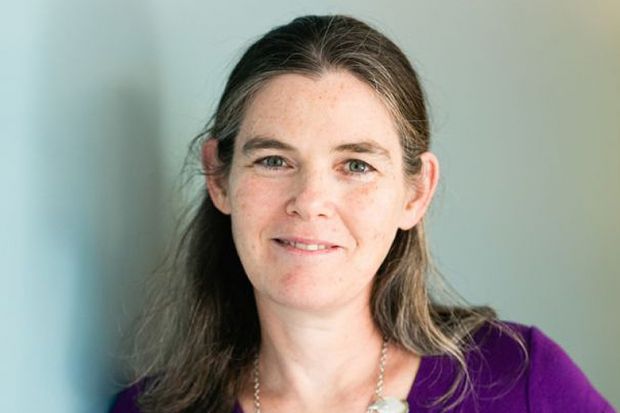Academics are “burning the candle at multiple ends” as they struggle to marry an 18th-century ideal of their craft with the demands of the 21st-century world, according to edtech guru Daphne Koller.
Professor Koller, a former Stanford University artificial intelligence researcher who helped found the massive open online course provider Coursera, attributed “the great resignation that’s hitting academia” to requirements for university staff to “do it all”.
Today’s academic is expected to be “the single repository of all the wisdom of their field, a great communicator, a great researcher and a great grant writer [who] can teach online, all while trying to maintain a work-life balance”, she told the Universities Australia conference in Canberra.
“Maybe we need to have a more diverse set of skills that reside within a university without all residing necessarily within that same magic academic.”
Professor Koller said academia’s work model still bore hallmarks of a time when “you were the repository of all of the knowledge in your discipline, because there wasn’t very much of it, and you were able to disseminate that by lecturing to people, because books were expensive so you couldn’t even get people to read them”.
Professor Koller is co-founder of the hybrid learning platform Engageli and founding chief executive of Insitro, a company that uses machine learning to develop pharmaceuticals. She rejected suggestions that the lecture was “a thing of the past”, saying learning required a combination of approaches.
“In the same way that we go and see a good play or a good movie, [and] sometimes it’s not the same as reading the book, I think that there is something magical about a truly good lecture that’s able to get everyone energised and excited about the content. Some amount of that is good, but it can’t be the only thing. Certain [learning] styles work well for some and are completely useless for others,” she said.
Professor Koller also rejected claims that the metaverse, which she likened to virtual reality, was the next big thing in education. “Flying through the pyramids of Egypt, or doing a chemical experiment where…the molecules or the atoms are seen from the inside – those are wonderful integration experiences that allow students to immerse themselves in their learning,” she said.
“But will day-to-day teaching happen in the metaverse, and will that be hugely additive to what we’re able to do today? I don’t think the problem lies in 2D pictures on a screen versus avatars. How does an instructor meaningfully engage with individual students, understand what it is that they’re learning, where they’re not learning, how one can help them? It’s less about the venue and more about how to create the right set of tools for instructors to truly have that dialogue with their students. And I don’t think that’s about the metaverse.”
Professor Koller also said universities needed to be more “deliberate” about creating workplace cultures in which academics were expected to engage “openly, constructively and with respect” with peers from different disciplines.
She said universities – and certainly university departments – tended to develop their cultures organically. “But I’ve come to be wary of organic development of culture as a good thing, because it’s very easy for it to go awry.”
Register to continue
Why register?
- Registration is free and only takes a moment
- Once registered, you can read 3 articles a month
- Sign up for our newsletter
Subscribe
Or subscribe for unlimited access to:
- Unlimited access to news, views, insights & reviews
- Digital editions
- Digital access to THE’s university and college rankings analysis
Already registered or a current subscriber? Login








